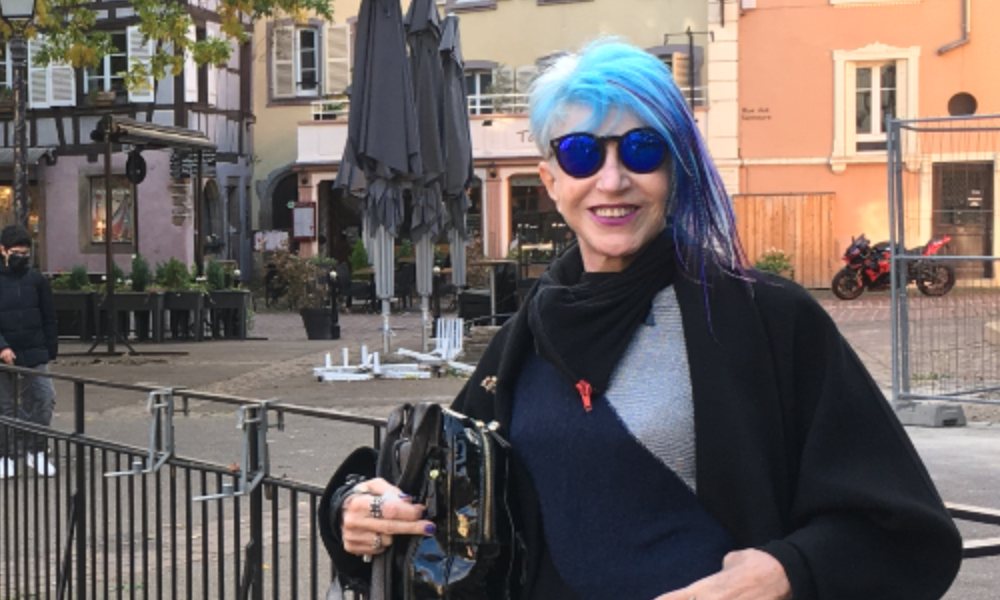Moment is publishing regular updates from Helen, a Soviet American Jew living in Kyiv. Read all the diary entries here.
My very close friend Mila, 65, is all alone. She lost two children—one at a young age and another at the age of 20 in a car accident. Later, after 40 years of marriage, her husband left her for a younger woman.
In time, she reconnected with a college friend, Michael, who lives in Russia, and they started a relationship. The future seemed to be not that gloomy. Though it was long distance, Mila visited him for almost all holidays and they spent vacations together. They were growing closer and had started to plan a future together.
And then suddenly it was over, because Michael lives in Moscow, and believes Putin’s propaganda. He is also unable to travel for health reasons, and Mila can’t visit him in Russia.
A true survivor of a tragic life, now she has to live through the war alone, at the age of 65.
In the first days of the war, Mila decided to flee Kyiv with good friends, their grown daughter and the daughter’s family. Her friends stayed in Poland; their daughter went on to Lithuania, where her partner was originally from. Mila broke her wrist on one of the first days of her escape, which added to the hardship of the journey. She decided to go on to the south of France, where childhood friends have been living for 20 years. Mila has frequently visited them for summer vacations.
They gladly accepted Mila. Their house was big enough for her to have her own room—much better conditions than in many refugee camps. In France, Mila was surrounded by love and her wrist was taken care of with the help of her friends, who took her to doctors. With her arm in a cast, Mila wasn’t fully functional, and she was grateful for all the care her friends provided.
The friends, however, are originally from Sevastopol, in the Crimea area, now occupied by Russia. They have been watching Russian TV for years and are totally under the spell of Putin’s propaganda. Upon Mila’s arrival, any conversations about the war were a forbidden topic in the house.
But how is it possible not to speak about your beloved country being bombed with close friends you are staying with? When Mila entered the living room, they would turn the TV down and abruptly stop their conversations. And this was on a day-to-day basis. Mila was still teaching online–she is a professor at Kyiv Polytechnical University—and from time to time she could discuss the pains of the war in Ukraine with her colleagues and friends in Poland. To do so, she had to wait for her hosts to leave or lock herself in the bathroom and whisper.
Mila had left Kyiv in March in winter clothes with only a backpack. After four months of exile, she was able to visit Kyiv at the end of June, and I saw her then. She was allowed to leave for only 20 days if she wanted to keep her residential permit application in France in progress.
Mila had a lot of decisions to make and was facing many problems: Did she want to stay in Kyiv, the city she was born in and loves dearly, where the war seemed to have no end, and where she was isolated from friends who were scattered all over Europe? Not a great choice.
Or did she want to live as a refugee, in subsidized housing with minimal financial support (it’s 400 euros a month) in France, in a country where she doesn’t speak the language and where she is isolated? Definitely not.
Nevertheless, she had to choose and is back in France now, living in a subsidized two-room apartment. One room is occupied by a family with a little child, and the other room Mila shares with two women–complete strangers. Two small rooms and one bathroom for all six.
She has considered rejoining the family of her friends in Poland. They are close, and moreover, Ukrainian and Polish languages are similar. Knowing Ukrainian ensures that you’ll understand Polish and will be understood speaking Ukrainian. However, she will have to start the refugee application all over again, and again become a refugee living at the mercy of another country.
Which is worse: feeling safe as a refugee leaving behind your homeland, your language, your city, your favorite places? Or living as a dignified citizen at home on your own salary and retirement money, but under constant danger and with an unpredictable future?
In both cases in solitude. This is just one example of the way so many lives have taken disastrous turns due to this never ending war.

